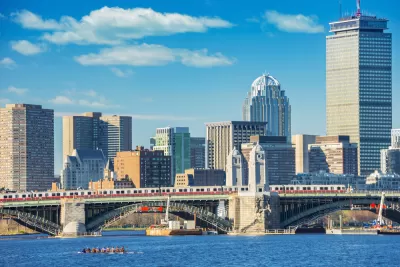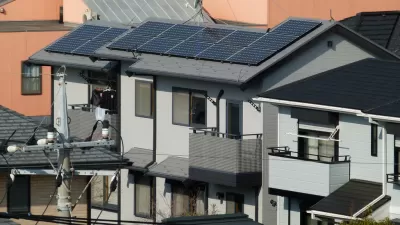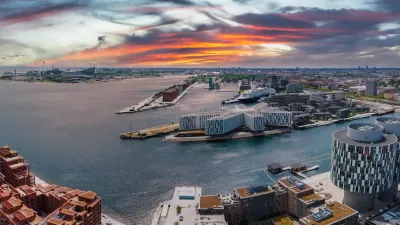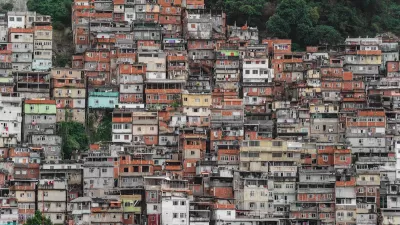The American Council for an Energy Efficient Economy has released its third biannual City Energy Efficiency Scorecard.

"Boston is the most energy-efficient large city in the U.S. for the third time running," according to an article by Josh Cohen. "The ranking comes from the American Council for an Energy Efficient Economy’s third biannual City Energy Efficiency Scorecard."
"The scorecard ranks the 51 largest U.S. cities based on five criteria," explains Cohen: "local government operations, community-wide initiatives, building policies, energy and water utilities, and transportation policies."
Boston scored an 84.5 out of 100 possible points on way to its place at the top of the list, showing that there's still room for improvement, even from the best-performing cities. Speaking of room for improvement, the majority of the cities scored by ACEEE scored less than 40 points. Boston was followed by New York, Seattle, Portland, and Los Angeles in the top five.
FULL STORY: 32 Cities Improve Energy Score Per New Ranking

Alabama: Trump Terminates Settlements for Black Communities Harmed By Raw Sewage
Trump deemed the landmark civil rights agreement “illegal DEI and environmental justice policy.”

Planetizen Federal Action Tracker
A weekly monitor of how Trump’s orders and actions are impacting planners and planning in America.

The 120 Year Old Tiny Home Villages That Sheltered San Francisco’s Earthquake Refugees
More than a century ago, San Francisco mobilized to house thousands of residents displaced by the 1906 earthquake. Could their strategy offer a model for the present?

LA’s Tree Emergency Goes Beyond Vandalism
After a vandal destroyed dozens of downtown LA trees, Mayor Karen Bass vowed to replace them. Days later, she slashed the city’s tree budget.

Sacramento Leads Nation With Bus-Mounted Bike Lane Enforcement Cameras
The city is the first to use its bus-mounted traffic enforcement system to cite drivers who park or drive in bike lanes.

Seattle Voters Approve Social Housing Referendum
Voters approved a corporate tax to fund the city’s housing authority despite an opposition campaign funded by Amazon and Microsoft.
Urban Design for Planners 1: Software Tools
This six-course series explores essential urban design concepts using open source software and equips planners with the tools they need to participate fully in the urban design process.
Planning for Universal Design
Learn the tools for implementing Universal Design in planning regulations.
Ada County Highway District
Clanton & Associates, Inc.
Jessamine County Fiscal Court
Institute for Housing and Urban Development Studies (IHS)
City of Grandview
Harvard GSD Executive Education
Toledo-Lucas County Plan Commissions
Salt Lake City
NYU Wagner Graduate School of Public Service





























